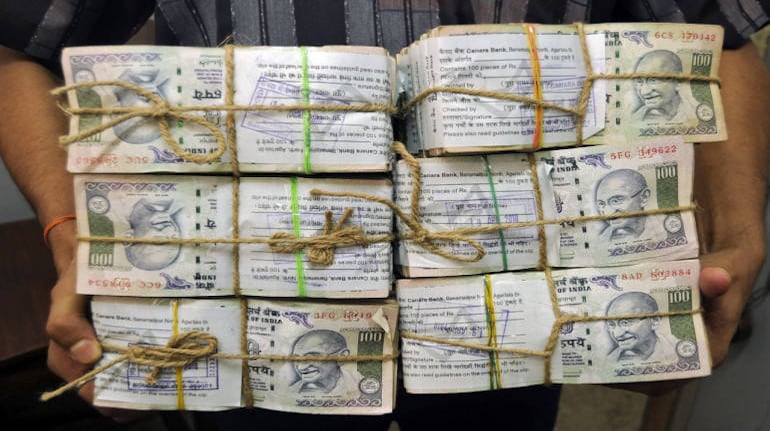



One of the most under-discussed subjects in economics is the true nature of modern banking. It is now common sense and an almost universally accepted notion that banks are essentially financial intermediaries between savers and investors.
Consider this definition from a popular economics textbook by Gregory Mankiw: "Banks are the financial intermediaries with which people are most familiar. A primary job of banks is to take in deposits from people who want to save and use these deposits to make loans to people who want to borrow.”
Unfortunately, this idea is far from reality, and one that needs to be contested given its implications on economic stability, growth and development. However, where do we begin? While economists are engaged in heated discussions over bail-ins and bail-outs, the word which is actually crucial in unearthing the essence of banking is ‘bailment’.
What is surprising is that questions over terms such as ‘bailment’ were deeply explored millennia ago in Roman law, but have over time been gradually eliminated from mainstream economic discourse, culminating in naïve notions of banking as propagated by Mankiw.
In order to deconstruct banking, we begin with the term deposit. Do banks take ‘deposits’? No. The word deposit taken from the Roman law depositum implies bailment. In other words, a deposit would mean that the bailor (depositor) transfers physical possession of the property (money) for a period of time and for a specific purpose to the bailee (bank), but retains ownership. Henry Dunning Macleod, however, articulated the actual operation succinctly more than a 150 years ago:
‘When the customer pays in money to his account at his banker’s, the Property in the money passes absolutely to the banker. He [the bank] is not the TRUSTEE or the BAILEE of it, but he becomes the OWNER of it, and is entitled to use it anyway he pleases for his own purposes.’ (Emphasis in the original)
This is, therefore, a purchase (sale) of money by the bank (customer). In exchange, the bank issues a ‘credit’ in favour of the customer with the promise that the bank will deliver an equal amount of money — although no specific money is assigned to it — on demand. In Roman law, these were referred to as ‘mutuum’ or loan for consumption contracts. This difference between a deposit and a relationship of creditor-debtor can have implications in case of bank distress or failures, and thereby the legal position on bail-ins and bail-outs. Meanwhile, the customer can transfer their new property (the bank’s debt) to whomsoever they want, and that person can claim money in exchange from the bank.
The other side of the bank’s operations — ‘lending’ — is also significant. To lend something implies two essential conditions: that it already exists and that something is actually transferred from someone to someone else or some other entity. In an extraordinary empirical study of actual transactions recorded by a bank when he actually took a loan, Richard Werner found that the bank did not ‘lend’ money. The bank created money ‘ex nihilo’ or out of nothing. This happened when the bank purchased his promissory and in return opened a kind of ‘fictitious deposit account’ in his favour. Nothing was really ‘deposited’ into it. Instead, it was a mere acknowledgement of the bank’s debt to him registered with a ledger entry in its books of accounts in return for his promissory note.
In a paper that was published in its quarterly report of 2014 to coincide with Werner’s findings, the Bank of England too acknowledged that banks create money out of thin air. The idea of credit creation by banks can, however, be traced back to economists such as Macleod, Ralph Hawtrey as well as Joseph Schumpeter and later among Post-Keynesians such as Basil Moore, promoter of Endogenous Money Theory. In spite of the recognition of endogenous money, the financial intermediation model and its defunct predecessor, the money multiplier model — which incorrectly assumes that banks lend central bank reserve money — continue to dominate the framework for our understanding of modern credit and banking.
In a modern money economy like the United Kingdom, some 97 percent of all transactions are carried out with bank liabilities (the bank’s acknowledgement of its debt) and not central bank money (currency notes). Commercial banks, therefore, not only decide how much of money is created in a modern economy but also who gets it. This makes banks extremely powerful institutions in an economy in which a significant portion of investments in productive sectors of the economy depend on credit.
Although central banks can influence credit creation by banks by stipulating capital adequacy norms (like Basel III) and also the repo rate at which it makes reserve money available to the commercial banking system, a necessity for interbank settlements, these per se do not address the problem of how banks decide who gets credit, and how much of it. While lowering interest rates are often known to be the cause of asset bubbles, raising interest rates could also result in a similar outcome by diverting credit to riskier ventures, including speculative purchase of assets.
Some heterodox economists such as Werner, therefore, argue that stricter control over direction of credit as well as a decentralised banking sector that is more responsive to the needs of small and medium industries may be required to increase real capital investment and employment opportunities.
The success of economies like Germany, Japan, Taiwan, South Korea and more recently, China, can be understood only with an appreciation of the essence of banking, namely, its dominance over the creation of money in a modern economy and the need to exercise appropriate control over it.
Sashi Sivramkrishna is an author, economic historian and documentary filmmaker. Twitter: @sashi31363. Views are personal.
Discover the latest Business News, Sensex, and Nifty updates. Obtain Personal Finance insights, tax queries, and expert opinions on Moneycontrol or download the Moneycontrol App to stay updated!